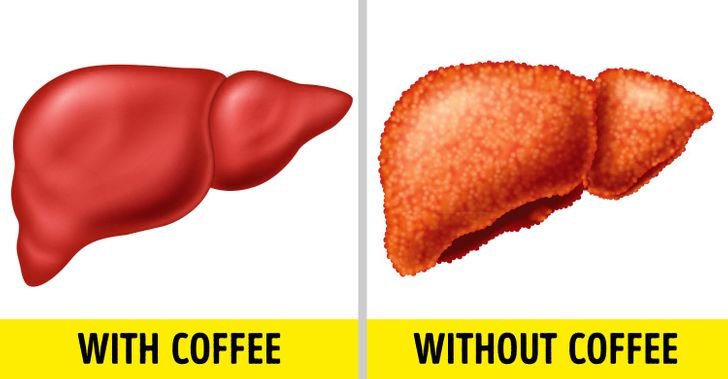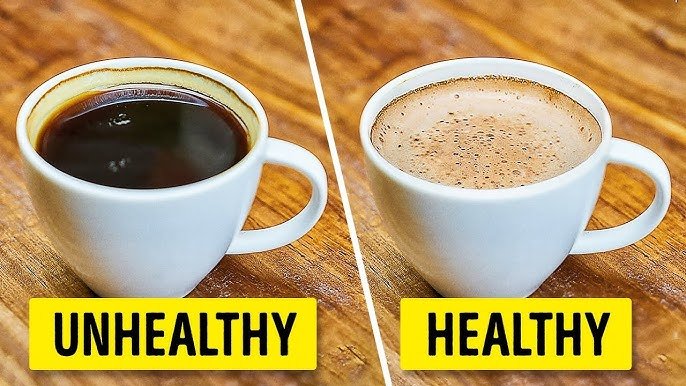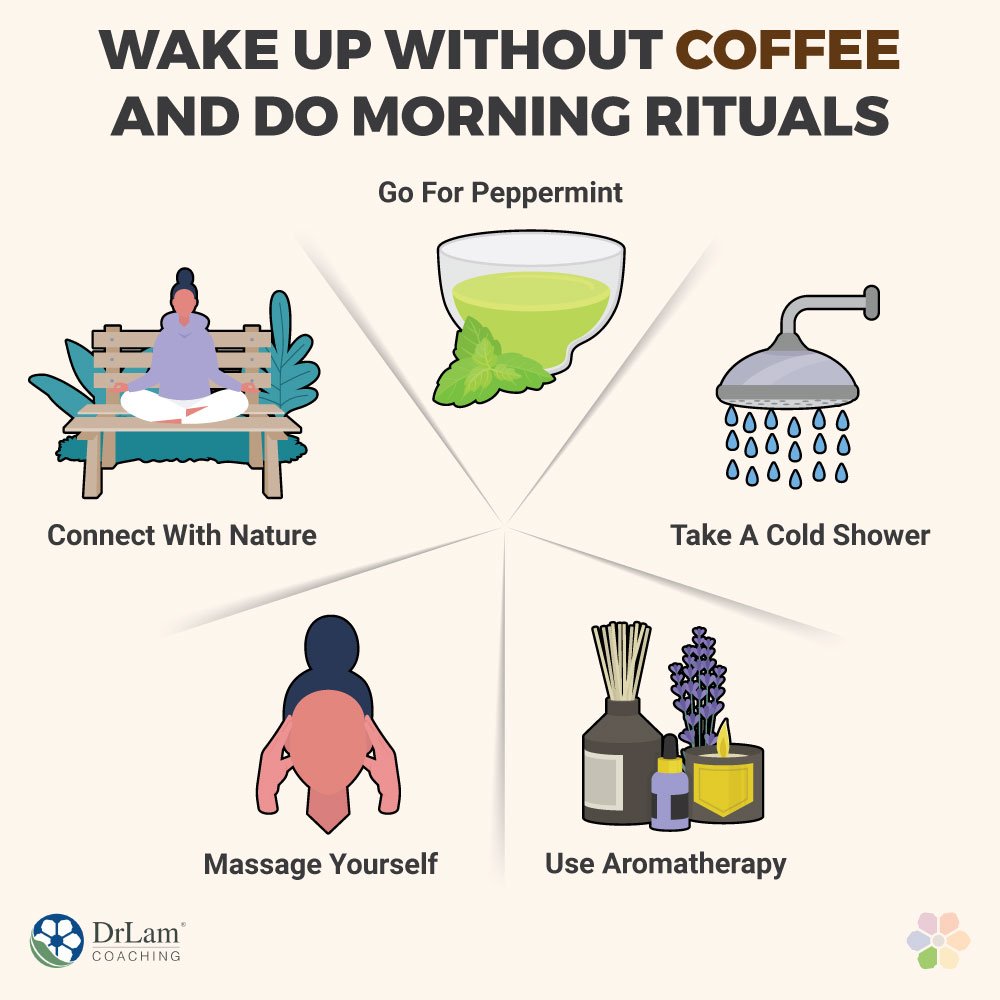Have you ever wondered if you’re healthier with or without coffee? This question has been on the minds of many coffee drinkers and health enthusiasts alike. To find an answer, it helps to look at the benefits and drawbacks of coffee consumption.
The Consumption of Coffee
Coffee is one of the most widely consumed beverages around the world. It’s not just a morning ritual; it has become a significant part of many cultures. The caffeine in coffee is what keeps people coming back, but what does it do to your body?
The Caffeine Content
Caffeine, a natural stimulant found in coffee, is known for its ability to enhance alertness and provide you with a burst of energy. But, how much caffeine are you actually consuming when you drink coffee?
| Type of Coffee | Average Caffeine Content (mg) |
|---|---|
| Espresso (1 oz) | 63 |
| Brewed Coffee (8 oz) | 95 |
| Instant Coffee (8 oz) | 62 |
| Decaf Coffee (8 oz) | 2 |
The amount of caffeine can vary depending on the type of coffee and how it’s prepared.
Benefits of Coffee Consumption
Drinking coffee has several potential benefits, from enhancing mental alertness to providing crucial antioxidants. Understanding these benefits can help you make informed decisions about your coffee consumption.
Boosts Mental Alertness
One of the most immediate effects of drinking coffee is the boost in mental alertness you get from caffeine.
- Improved Concentration: Caffeine blocks inhibitory neurotransmitters, thereby increasing excitatory neurotransmitters like norepinephrine and dopamine. This means enhanced concentration and reduced mental fatigue.
- Memory Enhancement: Some studies suggest that caffeine may improve short-term recall, making it easier to retain and recall information. This could be particularly helpful during tasks that require significant mental effort.
High in Antioxidants
Coffee is rich in antioxidants which play a crucial role in combating free radicals in your body.
- Lowered Risk of Diseases: Antioxidants have been linked to reduced risks of chronic diseases such as heart disease and some types of cancer.
- Reduced Inflammation: Antioxidants can help reduce inflammation, a common precursor to many chronic illnesses.
Mental Health Benefits
The caffeine in coffee may also have some mental health benefits.
- Mood Enhancement: Coffee can make you feel happier by increasing the levels of neurotransmitters like serotonin and dopamine, which are known to improve mood.
- Depression Risk Reduction: Some studies suggest that moderate coffee consumption is associated with a lower risk of depression.

Drawbacks of Coffee Consumption
While coffee has its benefits, it also comes with some drawbacks. These potential negative effects can outweigh the benefits depending on your health and lifestyle.
Anxiety and Insomnia
Because caffeine is a stimulant, it can exacerbate symptoms of anxiety and disrupt your sleep patterns.
- Increased Anxiety: High caffeine intake can lead to nervousness, jitters, and overall increased levels of anxiety.
- Sleep Disruption: Drinking coffee too close to bedtime can interfere with your ability to fall asleep and the quality of your sleep.
Digestive Issues
For some people, coffee can cause stomach issues.
- Acidity: Coffee is acidic, which can lead to issues like acid reflux or heartburn.
- Digestive Discomfort: Some people experience stomach cramps or discomfort after drinking coffee, especially on an empty stomach.
Dependency and Withdrawal
Caffeine is addictive, and you can become dependent on it.
- Addiction: Regular caffeine consumption can lead to physical dependency. If you skip your regular cup, you might experience withdrawal symptoms.
- Withdrawal Symptoms: Symptoms of caffeine withdrawal include headaches, irritability, fatigue, and even depression.
Coffee and Health Metrics
To understand whether coffee is good or bad for you, it’s helpful to look at specific health metrics.
Impact on Heart Health
There’s a lot of debate about how coffee affects your heart.
| Factor | Positive Impact | Negative Impact |
|---|---|---|
| Blood Pressure | Short-term spikes | Possible long-term hypertension |
| Cholesterol Levels | May slightly lower LDL | Some unfiltered types can raise cholesterol |
| Heart Disease Risk | Potential reduced risk | High intake may initially increase heart risk |
Metabolic Health
Coffee can have mixed effects on your metabolism.
- Improved Metabolism: Caffeine can increase your metabolic rate, which helps you burn more calories.
- Blood Sugar Levels: Coffee has been shown to improve insulin sensitivity which can be beneficial for managing blood sugar. However, sweetened coffee drinks can spike your blood sugar levels.
Weight Management
Caffeine in coffee can help with weight management, but it’s complicated.
- Appetite Suppression: Caffeine can act as an appetite suppressant, making it easier to consume fewer calories.
- Caloric Content: It’s easy to negate any benefits by consuming high-sugar or high-fat coffee drinks.

Alternative Options
If coffee isn’t for you, there are numerous alternatives that can provide similar benefits without some of the drawbacks.
Tea
Tea is a popular alternative with various types like black, green, and herbal teas.
- Lower Caffeine Content: Most teas have significantly less caffeine than coffee, making them a better option for those sensitive to caffeine.
- Health Benefits: Many teas are also high in antioxidants and can offer benefits similar to coffee.
Herbal Infusions
Herbal infusions, such as chamomile or rooibos, are caffeine-free alternatives that can also offer health benefits depending on the herbs used.
- Relaxation: Many herbal infusions promote relaxation and can be consumed before bedtime without the risk of insomnia.
- Digestive Aid: Some herbal teas can aid in digestion and improve gut health.
Decaffeinated Coffee
If you love the taste of coffee but want to avoid caffeine, decaf is a good compromise.
- Same Taste, Less Caffeine: Decaffeinated coffee is designed to taste almost identical to regular coffee but with much less caffeine.
- Similar Antioxidant Levels: Decaf coffee still retains many of the antioxidants found in regular coffee.
Making an Informed Decision
It’s important to weigh the pros and cons of drinking coffee to make an informed decision that suits your health needs and lifestyle.
Assess Your Sensitivity to Caffeine
Everyone has a different tolerance for caffeine. Assessing your own sensitivity can help you decide how much coffee (if any) you should drink.
- Self-monitoring: Keep a journal of your coffee intake and any symptoms such as anxiety, jitters, or sleep disturbances.
Consider Your Health Conditions
Certain pre-existing health conditions can be exacerbated by coffee.
- Heart Conditions: If you have high blood pressure or other heart conditions, consult your doctor about how much coffee is safe for you.
- Digestive Issues: Those with acid reflux or other digestive problems should be cautious with coffee consumption.
Monitor Your Lifestyle Choices
Your lifestyle plays a big role in whether coffee is beneficial or detrimental to you.
- Sleep Schedule: If you have trouble sleeping, it’s essential to monitor when you’re drinking coffee. Avoiding it in the late afternoon and evening can help.
- Diet and Exercise: Coffee can affect your appetite and metabolism, so make sure it fits into your overall diet and exercise plan.

Conclusion
Whether coffee is good or bad for you largely depends on your individual health, lifestyle, and how your body responds to caffeine. It offers numerous benefits like improved mental alertness, antioxidants, and possible reduced risks of some diseases. However, it also has potential drawbacks such as anxiety, digestive issues, and dependency.
By assessing your own tolerance for caffeine, considering your health conditions, and monitoring how coffee affects your lifestyle, you can make an informed decision. And remember, alternative options like tea, herbal infusions, or decaffeinated coffee are always available for those who seek the benefits without the side effects. The key is balance and understanding what works best for you.
So, are you healthier with or without coffee? The answer lies in knowing yourself and making choices that best fit your well-being.
